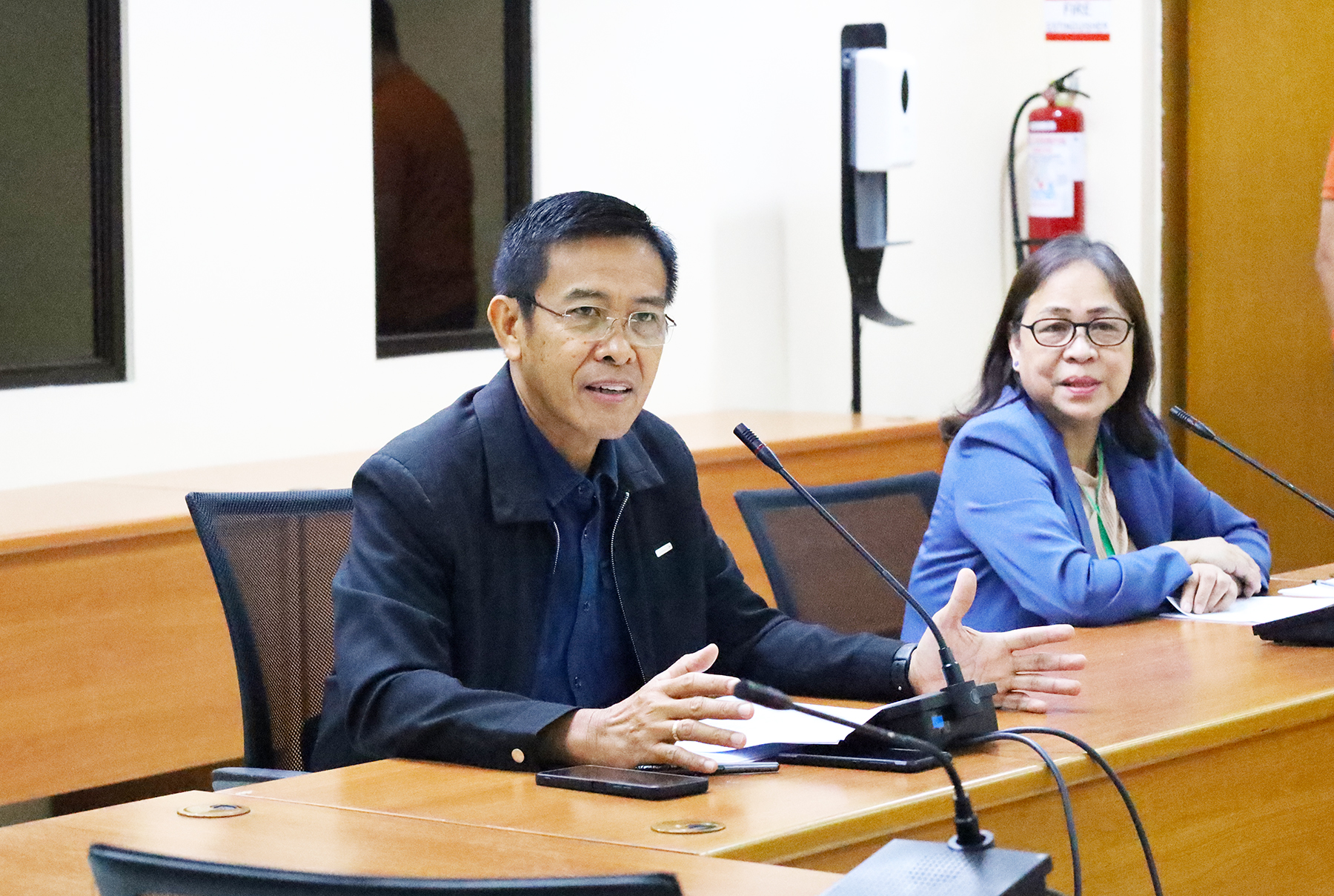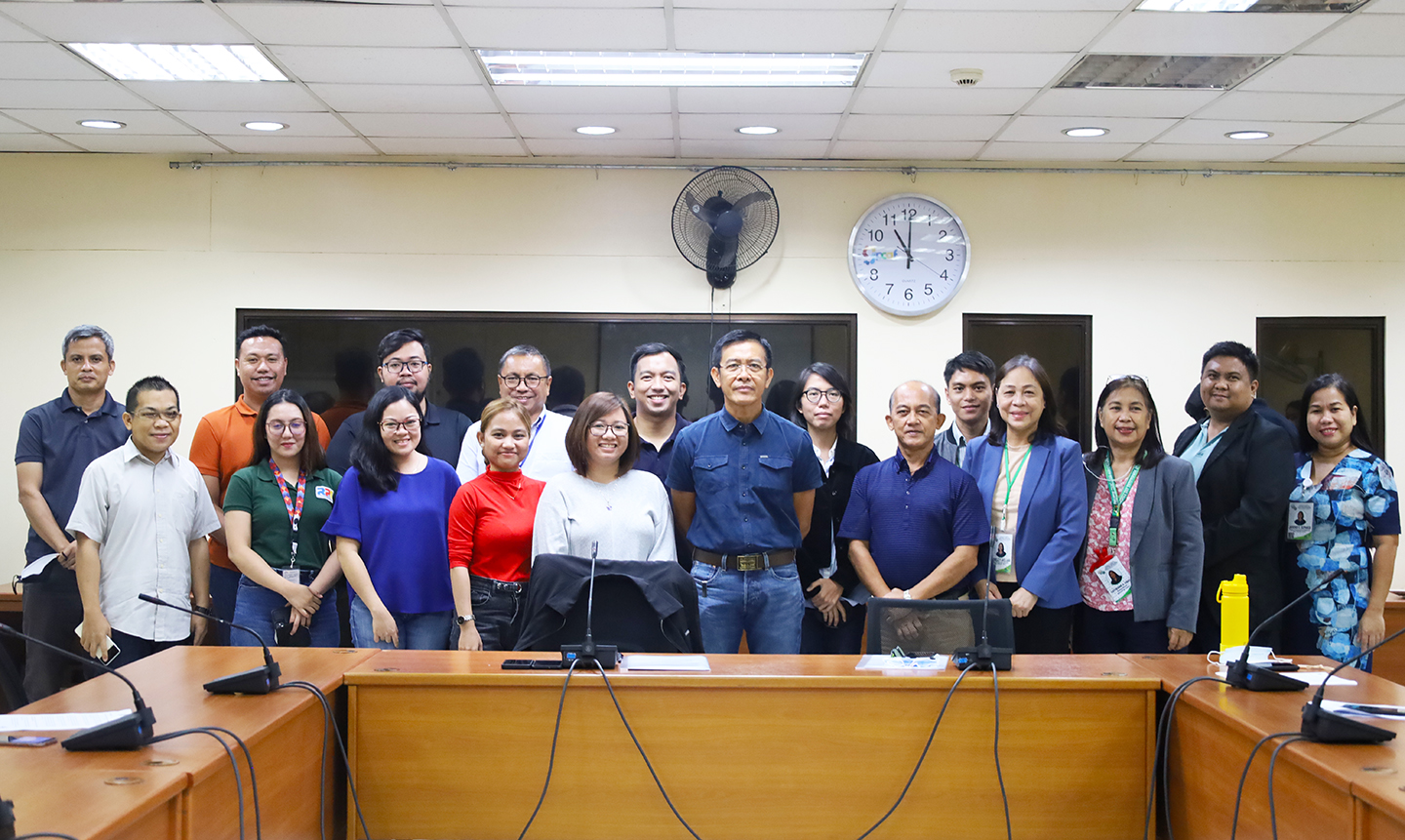
The Philippine Council for Agriculture and Fisheries (PCAF) is set to celebrate its 10th anniversary on June 26, 2023, with the theme “A decade of heightening participatory processes, strengthening partnerships, and extending institutional support”.
PCAF is the result of the consolidation of two agencies- the National Agricultural and Fishery Council and the Livestock Development Council as per Executive Order 366, Series of 2004 in 2013.
For 10 years, PCAF has evolved to be the participatory hub of the Department by providing mechanisms for agri-fishery stakeholders from the national down to the municipal level in participatory policy-making, planning and budgeting, monitoring and tracking, and partnership development in the agriculture and fishery sector.
During the Kapihan sa PCAF: Kumustahan at Pasasalamat on June 14, 2023, PCAF Executive Director Nestor Domenden presented to the members of the DA press corps the agency’s contribution in the participatory process through consultations, monitoring activities, forging of partnership agreements, Civil Society Organization (CSO) accreditation, and administrative support through the past decade.

The Kapihan is an informal round table discussion that aims to introduce PCAF officials to the media agri beat and thank them for supporting the agency and its stakeholders.
This June, PCAF’s four divisions have already been conducting activities for its employees to showcase their contributions and plans. On the 26th, the agency will open its exhibit at the DA lobby highlighting the milestones of the agency over the past decade. The management will also honor the retirees and award the first-ever Gawad PCAF for outstanding employees, chiefs, section and division in 2022.
A commitment for continuous collaboration and policy reforms for a “Masaganang Agrikultura at Maunlad na Ekonomiya”
Here are some of PCAF’s milestones that supported the farmers, fisherfolks, and the whole value chain to be part of the decision-making process that has improved transparency and accountability in the government.
1. Spearheaded the development of commodity industry roadmaps (CIRs)
Through its National Sectoral Committees (NSCs), the agency facilitated the development of various CIRs, which could help attain the country’s food security goal.
The CIRs serve as guides or blueprints on how industries will achieve their goals of inclusive growth through a value chain approach, and how they can increase and sustain yields and incomes, improve farm productivity and enhance farmers’ skills and capacities from 2022-2027 and beyond.
To date, there are 21 completed CIRs: banana, mango, abaca, cacao, coffee, coconut, carabao, dairy, milkfish, onion, rubber, shellfish, shrimp, seaweeds, tilapia, hog, small ruminants, vegetables, yellow corn, poultry broiler, and poultry layer.
2. Participatory monitoring and tracking (PMT) of DA-funded programs and projects by PCAF and the members of the NSCs and the Agricultural and Fishery Councils (AFCs).
The findings of the PMT were used as bases for policy recommendations to improve the implementation of DA programs and incorporated into the procurement process.
3. NSCs’ involvement in the crafting and lobbying on their positions on proposed laws and implementing rules and regulations, like the Agricultural and Fisheries Mechanization or AFMech Law, TRAIN Law, Coconut Levy, Rice Tariffication Law, among others.
4. ISO Certification
To ensure the provision of consistently good quality services to its agri-fishery stakeholders, PCAF conducted a series of evaluations on its quality management system (QMS).
The agency was successfully given an ISO 9001:2015/ certificate of compliance by TUV Rheinland in 2018 and achieved recertification in the succeeding years. It has continuously implemented and monitored QMS to ensure continual improvement of its processes and procedures.
5. Capacitating the agency’s human resource and development partners through training and knowledge-sharing activities
In building client-focused, high-performance working teams, PCAF has capacitated its agency’s human resource and private sector-partners.
6. Partnership Agreements with CSOs
Starting 2016, partnership agreements forged with CSOs became an output indicator of PCAF.
7. CSO Accreditation
The National Technical Committee chaired by PCAF, facilitates accreditation of eligible CSOs whose major areas of operation span more than one region or are national in scope.
As implementing partners, accredited CSOs are given funding from DA when they are implementing a government program or a project jointly with a government agency or a beneficiary of a government program and project.
In the past three years, the process has accredited 423 CSOs as co-implementation partners at the national and regional levels.
This has enabled collaborative project implementation within the DA framework, including initiatives like: KADIWA Financial Grants, ACPC Credit Program conduits, Food Terminal Projects, and provision of production and post-production equipment, among others.
8. Creation of Databases and Dashboards
To provide support services critical in the effective functioning of the program, PCAF created databases and dashboards like the Major Final Output dashboard, performance-based bonus dashboard, CSO dashboard, consultative bodies membership dashboard, and WeTrack dashboard for consolidating and analyzing monitoring reports.
9. Institutionalization of a Motivational Program for the Council
PCAF has been conducting annual National Volunteers’ Day celebrations since 2015 to give recognition to the AFCs and NSCs for their continued passion to bring change to the agri-fishery sector through volunteerism.
10. Provision/approval of the budgets for the conduct of evaluative and policy studies starting in 2015, which subsequently became the bases for sound policy recommendations. To date, 15 studies have been commissioned and completed.
11. Participation in the crafting of country positions and negotiations in the United Nations, particularly in the Fish Stocks Agreement, Resolution on Sustainable Fisheries and the Conservation and Sustainable Use of Biodiversity in Areas Beyond National Jurisdiction.
12. Knowledge Management
PCAF ensured the continuous flow of information to consultative bodies affecting the sector. It also crafted the agency’s medium-term Information Systems Strategic Plan to serve as the basis for the hardware and software ICT requirements of the agency.
13. Creation of the Agricultural and Fisheries Mechanization and Infrastructure Support Section (AFMISS)
On March 1, 2022, the DBM approved the creation of the new A|F Mechanization and Infrastructure Support Section or AFMISS.
The new unit is tasked with providing secretariat and technical support to the Agricultural and Fishery Mechanization (AFMec) Committee and serve as the implementing unit of the Department of Agriculture-Constructors Performance Evaluation System (DA-CPES) and the National Agricultural and Fisheries Machinery Assemblers, Manufacturers, Importers, Distributors and Dealers Accreditation and Classification (NAMDAC).
14. Institutionalizing RAFC Chairs as FREDs
Since April 2017, for the whole month of May, the PCAF’s Regional Agricultural and Fishery Council Chairpersons serves as Farmer Regional Executive Directors (FRED) or Farmer-Director, in consonance with the celebration of the Farmers’ and Fisherfolk’s Month.
FREDs assume the leadership and managerial roles of the Regional Executive Directors and provide inputs on policy-related issues on the agriculture and fisheries sectors.
The program aims to strengthen the linkage between the AFCs in the regions and the DA-RFOs for the enhancement of the AFC involvement in the planning and problem-solving process of DA. | JC/Press Release











